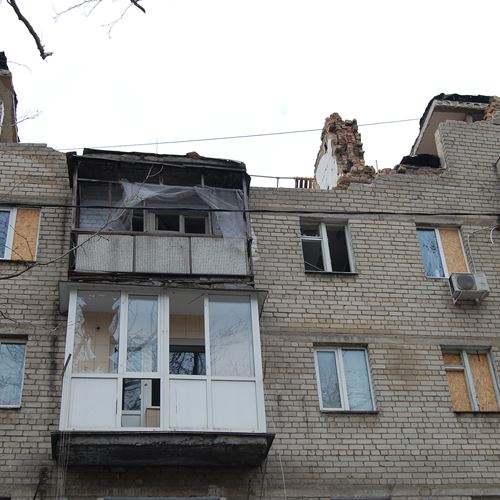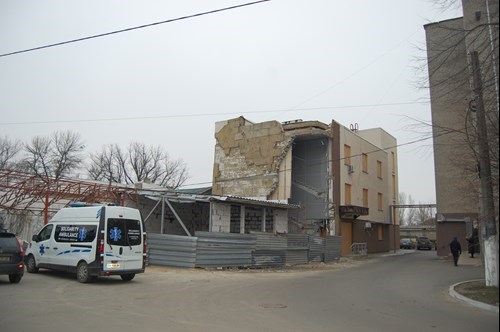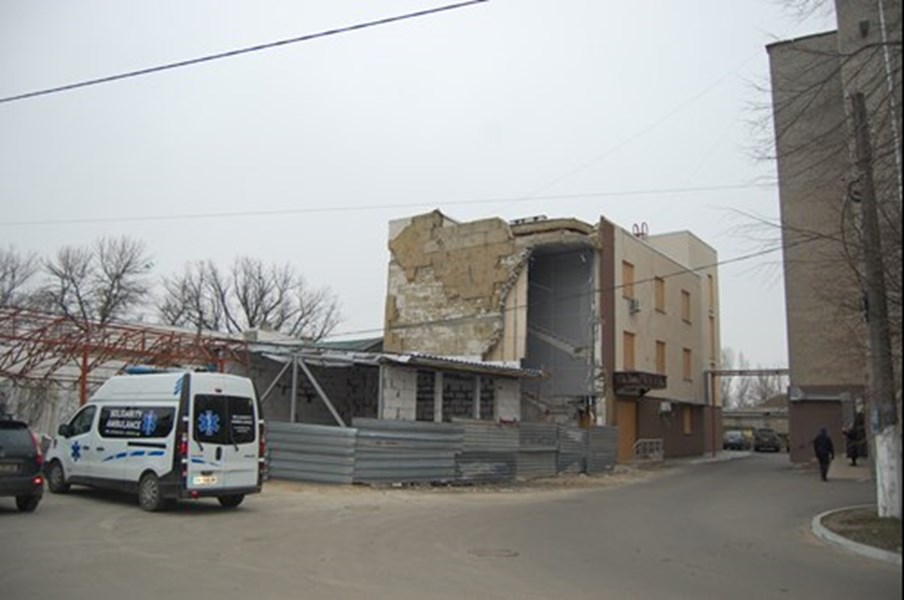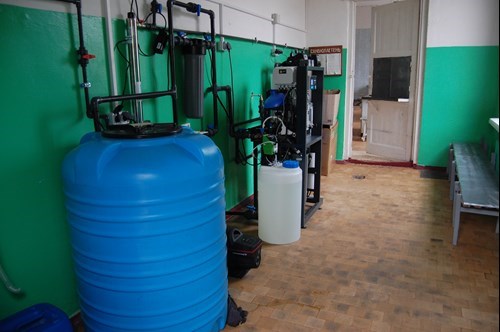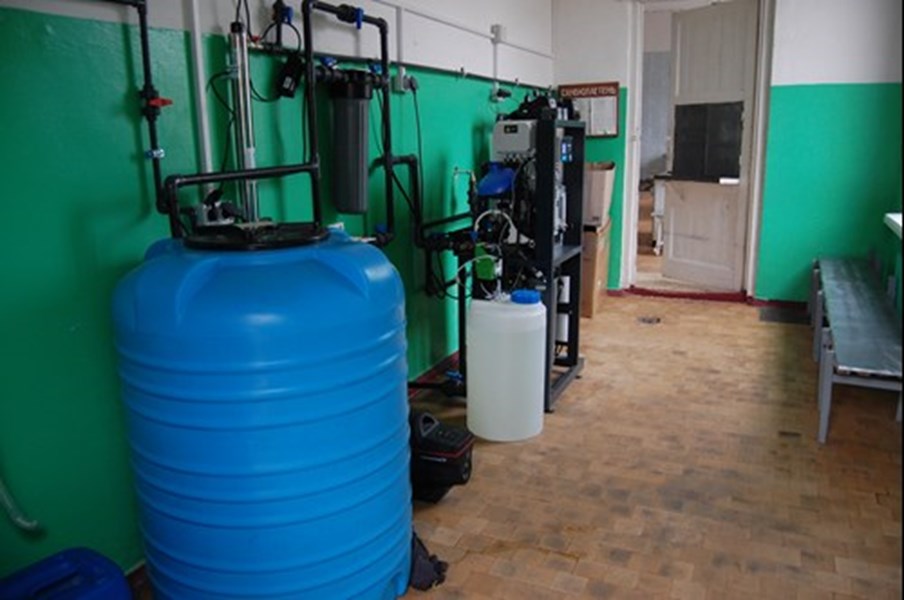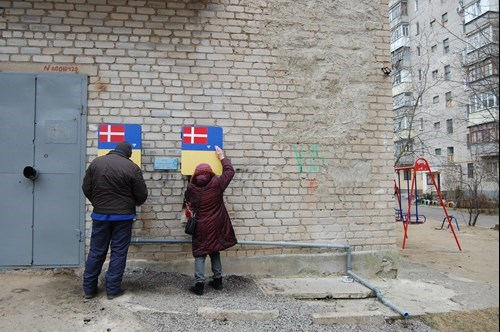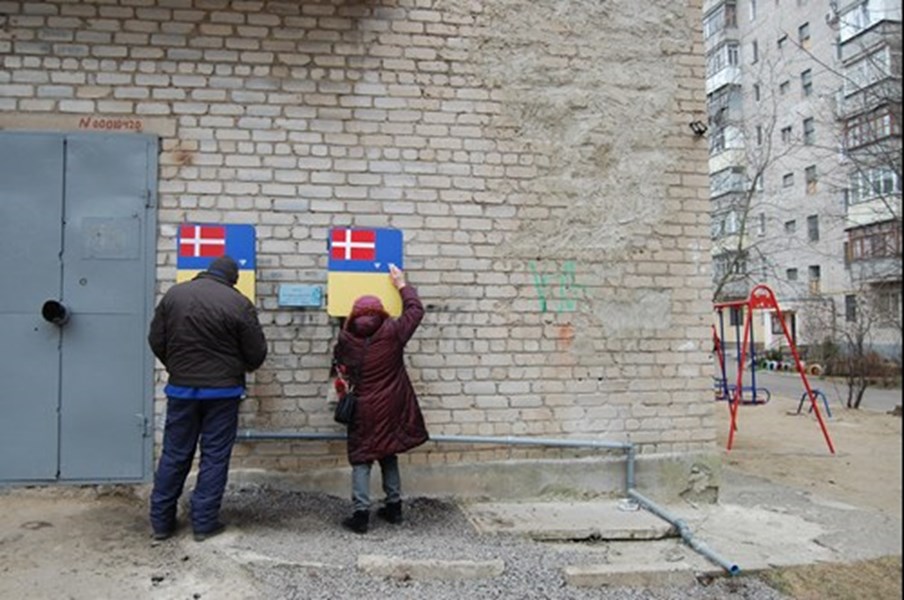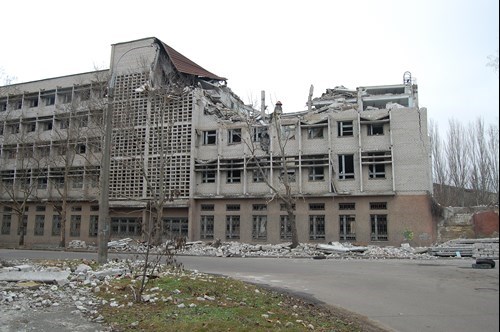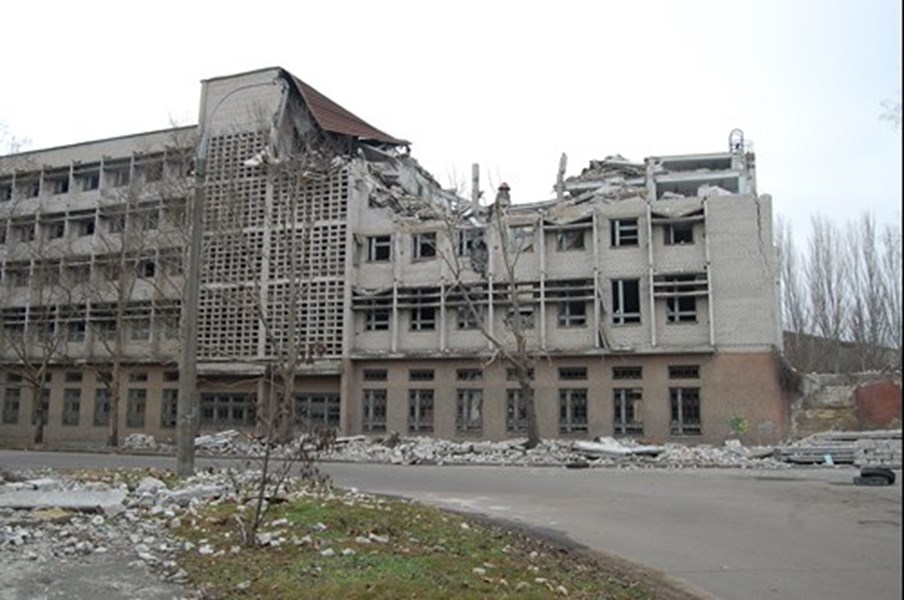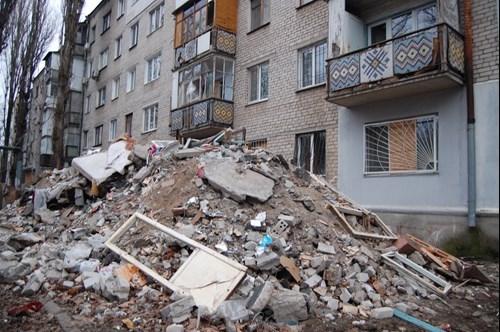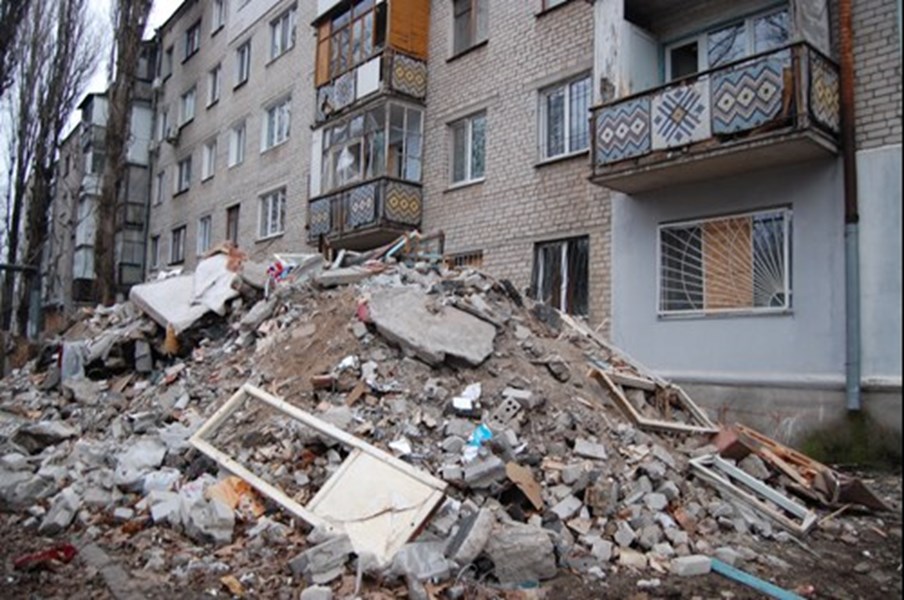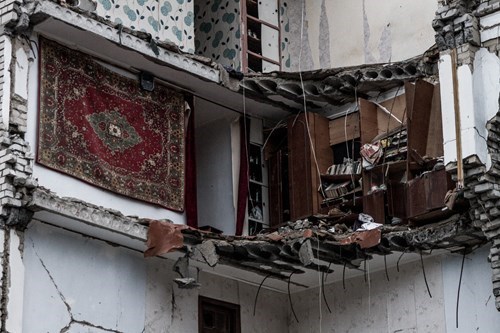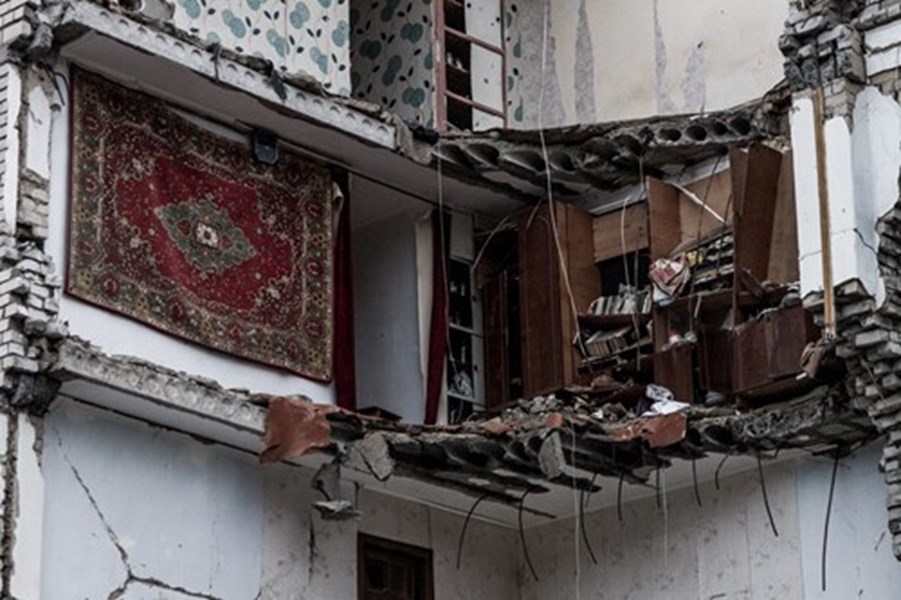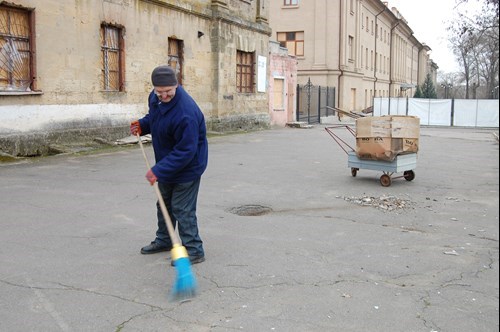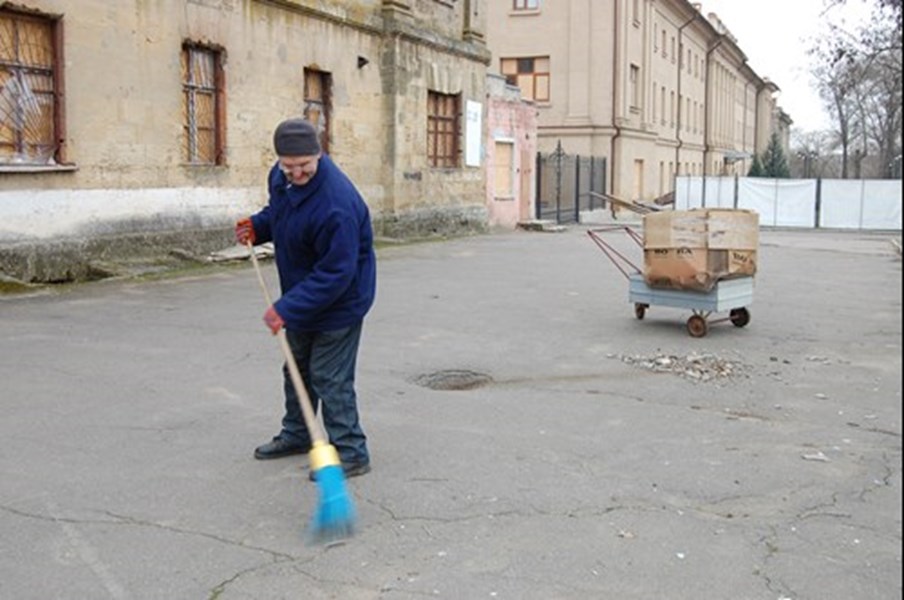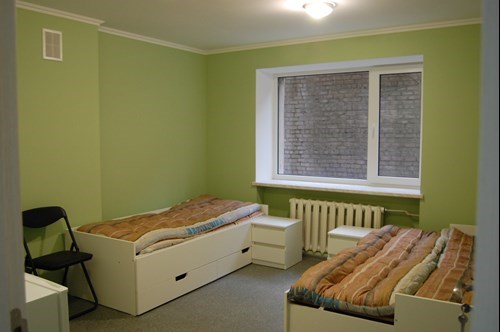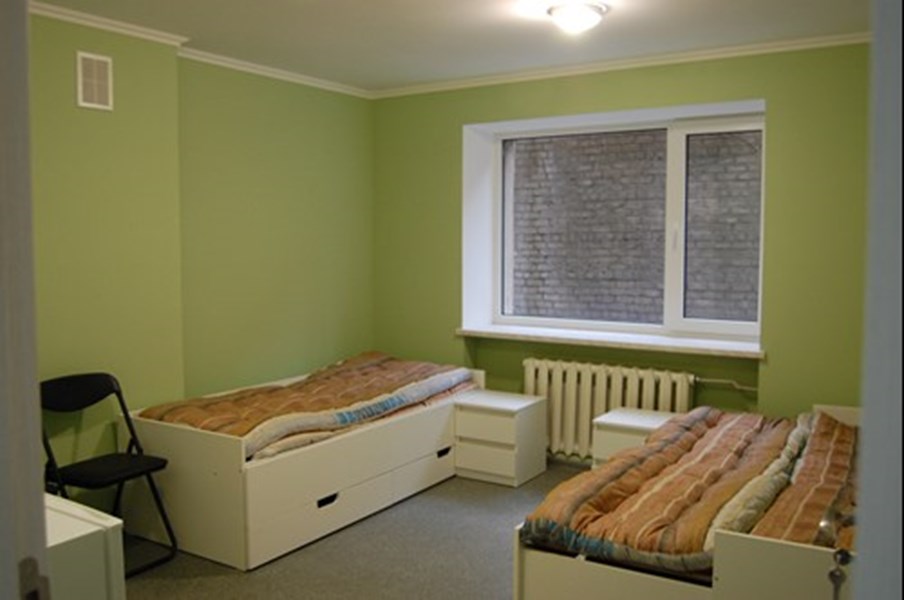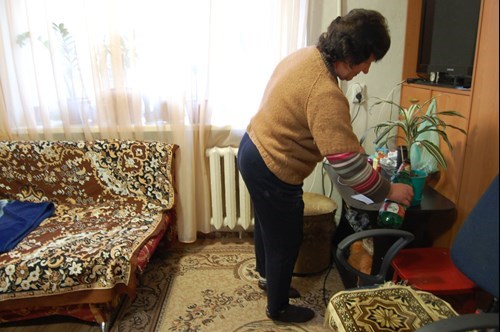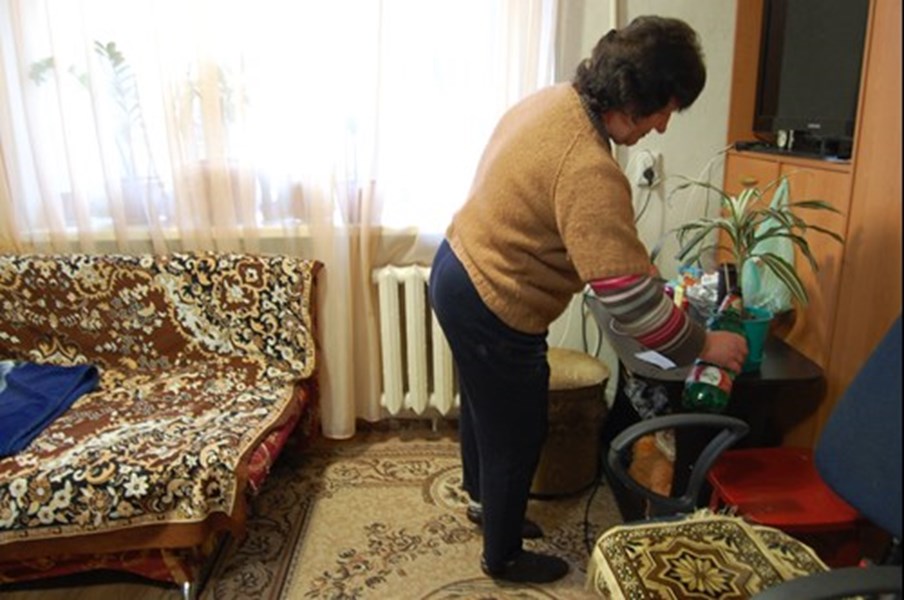09 Jul 2024
Joint Statement: New EU leadership must uphold the right to asylum in Europe
19 Jun 2024
Ukraine: “I was pulled out of a 5-metre deep crater” — victim of shelling
07 Jun 2024
Ukraine: “A shell hit our house, exploding just four meters away from our bed” ‒ Olena
31 May 2024
Ukraine: Empowering food security — DRC’s initiative in Ukraine's agricultural heartlands
24 Apr 2024
Ukraine: Strikes in Kharkiv damaged DRC’s office forcing temporary suspension of support to local populations
23 Apr 2024
129 civil society organisations call on MEPs to uphold fundamental rights and reject the harmful Schengen borders code recast
22 Apr 2024
Ukraine: Mechanical demining operations are gaining momentum in Mykolaiv Oblast
10 Apr 2024
Danish Refugee Council's statement on the adoption of the EU Pact on Migration and Asylum
03 Apr 2024
Ukraine: Communities in contaminated areas face severe risks from explosive ordnance
28 Mar 2024
Ukraine: “I tried to hide in a cellar when a bomb hit my yard” — Ivanna
18 Mar 2024
Surrendering human rights for migration control
05 Mar 2024
The EU must provide future-proof solutions for people displaced from Ukraine
22 Feb 2024
Ukraine: Two years after Russia’s full-scale invasion, the situation for the millions of internally displaced is deteriorating fast
09 Feb 2024
Ukraine: Strengthening national mine action capabilities
31 Jan 2024
New report: “They started beating us, used a stun gun and pepper spray on us and then threw us into the forest. We couldn't walk for three days because of the pain, and we had vision problems.”
31 Jan 2024
Pushbacks on the European borders: Unravelling the Perils Along Migration Journeys in Europe
24 Jan 2024
Ukraine: Shelter programme helps families rebuild their homes damaged by flooding or shelling
12 Jan 2024
Ukraine: Vital cash support to internally displaced persons amidst war
20 Dec 2023
Statement on EU Pact on Asylum and Migration: A wasted opportunity for a more balanced and humane approach.
13 Dec 2023
Ukraine: Surviving captivity in 2014, mother of 2 had to flee from home amidst the onset of war
12 Dec 2023
Moldova: DRC is committed to continue strategic partnership with Ministry of Internal Affairs of Moldova to strengthen joint refugee response
08 Dec 2023
Moldova: And the next level...
06 Dec 2023
Global Refugee Forum: DRC is thrilled to announce our participation in the 2023 GRF Legal Community Pledge.
29 Nov 2023
Focus on Regions: Launch of the Mixed Migration Review 2023
29 Nov 2023
Ukraine: New windows and water supply — DRC improves living conditions in western Ukraine shelters for IDPs
21 Nov 2023
Ukraine: The journey of a single mother fleeing the frontline Kherson city
13 Nov 2023
Poland: Four thousand kilometres long way to find a new home
10 Nov 2023
DRC’s support to Ukrainian civilians traveling from Poland to their hometowns: a glimpse into the mine risk education activities in Poland
09 Nov 2023
Poland | Open Place Krakow: Aid and activities for refugees and migrants
08 Nov 2023
Poland: Coping with displacement and being away from Ukraine
07 Nov 2023
Poland: Getting a second chance in life and a sense of hope after fleeing the war in Ukraine
26 Oct 2023
Ukraine: ‘I found a shell of a large calibre’ — DRC deminers clear agricultural lands
20 Oct 2023
Poland: DRC attends the Cross Border Cooperation Congress 2023 in Lublin
17 Oct 2023
Moldova: A hand in need – partnerships to find lasting solutions for Ukrainian refugees
02 Oct 2023
Beaten by police, bitten by dogs, and robbed of all rights: New Report Reveals Alarming Pushbacks and Violations at Europe's borders
29 Sep 2023
Poland: Reducing the carbon footprint of DRC operations
24 Sep 2023
Ukraine: 'I saw the missile coming' – a struggle of a single mother returning to rebuild a home
21 Sep 2023
Ukraine: Supporting children affected by explosive ordnance
20 Sep 2023
Poland: “We were 20,000 people in my home area. Now, it’s a ghost town in Ukraine!”
19 Sep 2023
Poland: Nurturing leadership talent among migrants and refugees
15 Sep 2023
Moldova: Finding the tune in a new life after fleeing war in Ukraine
13 Sep 2023
Ukraine: DRC provided necessary medical device to injured Bakhmut citizen
11 Sep 2023
Greece: Celebrating friendship in a music video by refugee children
29 Aug 2023
Greece: Access to quality education for refugee children
25 Aug 2023
Kosovo: Summer camps to empower minority teachers and youth
25 Aug 2023
Poland: Protecting Ukrainian lives through Risk Education
18 Aug 2023
Kilometres of Ukraine's forests are contaminated with explosive ordnance: DRC helps make them safe
04 Aug 2023
Poland: How offices in Warsaw are turned into shelter for vulnerable refugees from Ukraine
25 Jul 2023
Civilians under shelling in Ukraine: Ivan spent months in a school basement surviving the frontline battles
19 Jul 2023
DRC's support for victims of shelling in Ukraine: a glimpse into the lives of Chernihiv families
10 Jul 2023
DRC Moldova: Joint efforts improve access to legal aid for Ukrainian refugees
28 Jun 2023
Poland: New community centre for Ukrainian refugees in Krakow
22 Jun 2023
Ukraine Reconstruction: DRC helps with emergency repair of homes
21 Jun 2023
Poland: Tailoring free legal aid to protect refugees and vulnerable minorities
21 Jun 2023
Teaching youth in Serbia about gender-based violence and rights
21 Jun 2023
Safe Migration Information is critical for Ukrainians on the move
20 Jun 2023
DRC Kosovo: A decade of support to secure critical civilian registration concluded
20 Jun 2023
Medical aid piloted for migrants and refugees in Moldova
16 Jun 2023
Joint NGO Statement: The EU must not be complicit in the loss of lives at sea and in rights violations at Europe’s borders
16 Jun 2023
Greece: Need for spaces that are child-friendly and safe
06 Jun 2023
Ukraine: Thousands at risk following the Nova Kakhovka Dam burst
30 May 2023
Protecting Rights at Borders VI: What we do in the shadows
17 May 2023
Digital innovation in Ukraine as DRC launches new Legal Aid tool
15 May 2023
DRC Greece: Human Rights Actors join forces across Europe
15 May 2023
Bosnia & Herzegovina: May is Mental Health Awareness Month
12 May 2023
Conference Response to the Public Health Challenges of Mixed Migration
11 May 2023
Italian State blueprints DRC pilot for support to Ukrainian refugees
06 May 2023
The Danish Refugee Council supports local communities
28 Apr 2023
Ukrainian shoemaker survived a heavy explosion of an Explosive Ordnance left in a bin
26 Apr 2023
“Finding courage to start all over was tough”. Businesses across Ukraine adapt to wartime challenges
26 Apr 2023
Donation for the Cantonal Hospital in Bihać
25 Apr 2023
DRC is dedicated to the environmental protection
14 Apr 2023
Bosnia & Herzegovina: Digital literacy lessons for people on the move
14 Apr 2023
Greece: Narrowing the digital gap in education
14 Apr 2023
Italy: Social media to help raise local awareness and create dialogue
14 Apr 2023
Kosovo: Basic IT training courses and educational grants
14 Apr 2023
Moldova: Helping refugees from Ukraine overcome digital literacy barriers
14 Apr 2023
Serbia: Ukrainian refugees attend online risk education
04 Apr 2023
Fear of mines worries farmers in Ukraine as the planting season starts
03 Apr 2023
Meet Berin Muhić our Health Team Leader
24 Mar 2023
DRC donates eight laptops for the Canton Sarajevo Health Center
17 Mar 2023
Meet Adela Softić, our Project Team Leader
16 Mar 2023
DRC Secretary General: We have reached 3 million Ukrainians
08 Mar 2023
DRC receives grant for IT innovation and internet connectivity in Ukraine
08 Mar 2023
Development of skills among DRC staff on Gender-Based Violence in Bosnia & Hercegovina
06 Mar 2023
From Ukraine to Serbia: A living nightmare to escape war
03 Mar 2023
Meet Akin Duran, our Communication with Communities Officer
02 Mar 2023
Humanitarian mine action in Ukraine – much more than removing explosives
02 Mar 2023
One year after the activation of the Temporary Protection Directive: learnings on protection of refugees from Ukraine
27 Feb 2023
Meet Sanja Dželalagić, our Health Team Leader
24 Feb 2023
Romania – a safe haven and transit point for Ukrainian refugees
24 Feb 2023
Ukraine one year on:
24 Feb 2023
Joint humanitarian NGO statement: Ukraine one year on: Highlighting the needs of displaced Ukrainians in Georgia
23 Feb 2023
DRC clears villages in Kyiv Oblast littered with explosive ordnance
21 Feb 2023
DRC presence in southern Ukraine to reach newly accessible areas
21 Feb 2023
Meet Jovanka Runić, our Protection Team Leader
20 Feb 2023
Digital literacy classes for people on the move
16 Feb 2023
Meet Samir Aboukaf, our Translator and Cultural Mediator
14 Feb 2023
Looking for asylum for 18 years
13 Feb 2023
Heaven or hell at Italy’s northern borders
10 Feb 2023
Cooperation with health institutions to upgrade and improve services
09 Feb 2023
EU migration management: Wilful blindness to evidence of harmful human rights consequences
30 Jan 2023
Mykolaiv: A city without doors, windows and half of its citizens
27 Jan 2023
DRC focuses on improving access to primary and secondary health care to people on the move
26 Jan 2023
Protecting Rights at Borders: Beaten, punished, and pushed back
16 Jan 2023
Meet Faris Kulić, our Warehouse and Logistics Officer
12 Jan 2023
Protecting Rights at Borders (PRAB)
11 Jan 2023
Meet Erdumana Spahić, our Cultural Mediator and Translator
06 Jan 2023
Meet Mufid Khalili, our Protection Officer
29 Dec 2022
Moldova: Compassion, solidarity - and warmth
29 Dec 2022
Fleeing war in Ukraine - finding refuge in Serbia
29 Dec 2022
DRC Greece: Access to schools for migrant and refugee children
13 Dec 2022
Emergency shelter in Poland for refugees from Ukraine
13 Dec 2022
From surviving in basements in Ukraine to safety in Moldova
12 Dec 2022
EU’s actions on migratory routes must prioritize safe mobility and access to protection
08 Dec 2022
EU admits Croatia to Schengen Without Regard to Abuses at the Border
07 Dec 2022
DRC press release: Scaling up capacity in Moldova to host refugees from Ukraine
08 Nov 2022
Meet Ines Arnautović, our Health Team Leader
08 Sep 2022
Joint Statement: NGOs call on Member States
16 Dec 2021
12,000 pushbacks in 2021 reflects worrying normalization of illegal practice
03 Dec 2021
Need for calm and proportional response at the EUs external borders
26 Nov 2021
Joint Statement: Call on the EU: Restore Rights and Values at Europe’s Borders
03 Aug 2021
Croatia/EU Border Monitoring System: Effective Mechanism Needed - Independent, Broad Mandate, Adequate Resources
23 Jul 2021
Using family separation as deterrent – new report documents alarming illegal push-back methods
07 Jul 2021
Countering human smuggling: No silver bullet for safer mobility
12 May 2021
Push back of responsibility: Human Rights Violations as a Welcome Treatment at Europe’s Borders
18 Mar 2021
Open letter: Five years after the EU-Turkey Statement, European Civil Society Demands an End to Containment and Deterrence at the EU’s External Borders
10 Nov 2020
Turning rhetoric into reality: New monitoring mechanism at European borders should ensure fundamental rights and accountability
23 Sep 2020
Press release: Asylum and Migration Pact
